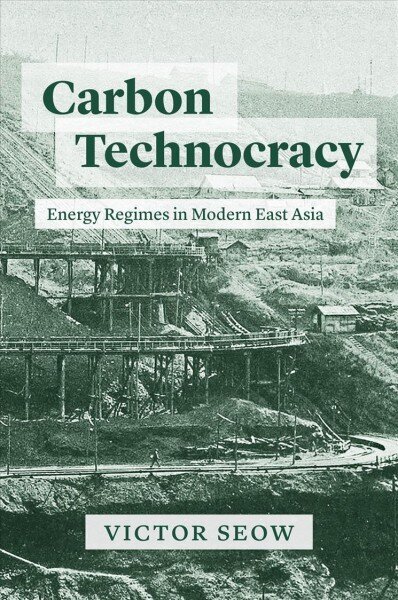-
Товары для сада
- Запчасти для садовой техники
- Газонокосилки
- Триммеры
- Кусторезы, ножницы для газона
- Пылесосы для сбора листьев, измельчители веток, очистители тротуарной плитки
- Измерители (температура, влажность, pH)
- Тачка для сада
- Культиваторы, мотоблоки, аэраторы
- Дровоколы
- Роботы-газонокосилки
- Садовые земляные буры
- Садовые тракторы
-
Спорт, досуг, туризм
- Грили, мангалы, коптильни
- Чемоданы, дорожные сумки
- Уличные бассейны
- Товары для рыбалки
- Батуты
- Надувные и пляжные товары
- Лодки, байдарки и дополнительное снаряжение
- Азартные игры
- Игры на открытом воздухе
- Игровые столы
- Охотничьи принадлежности
- Рюкзаки и сумки
- Гамаки, кровати, беседки, качели
- Уличные игрушки для детей
- Туристический инвентарь
- Фляги для воды
- Палатки
- Надувные матрасы и мебель
- Туристическая мебель
- Спальные мешки
- Туристические матрасы и коврики
- Туристические, походные рюкзаки
- Биотуалет
- Средства для ухода за обувью, одеждой и туристическим инвентарём
- Альпинистское снаряжение
- Средства защиты от комаров
- Принадлежности для автотуризма
- Товары для гимнастики и фитнеса
- Рюкзаки и сумки
- Водный спорт
- Аксессуары для массажа
- Ортезы и бандажи
- Футбольный мяч.
- Ракеточный спорт
- Баскетбол
- Боевые искусства
- Палки для ходьбы
- Дартс
- Сетевой
- Диск-гольф
- Насосы и иглы для мячей
- Шагомеры, хронометры, мониторы сердечного ритма
- Гольф
- Одежда для балета
- Товары для игры в бейсбол
- Гандбол
- Верховая езда
- Флорбол и хоккей на траве
- Мячи
- Велосипеды, ролики, скейтборды
- Тренажеры, товары для фитнеса
- Игровые столы
- Грузы, гантели, грифы
- Аминокислоты
- Углеводы
- Протеин
- Батончики
- Другие пищевые добавки и препараты
- Энергетики
- Функциональные продукты
- Глютамин
- Креатин
- L-карнитин
- Пищевые добавки и препараты для набора массы
- Добавки и препараты для суставов
- Добавки для восстановления
- Жиросжигатели
- Добавки и препараты для похудения
- Стимуляторы тестостерона
- Витамины
-
Мебель и домашний интерьер
- Стулья для кухни и столовой
- Кухонные шкафчики
- Кухонные и обеденные столы
- Комплекты мебели для столовой
- Столешницы для кухни
- Кухонные гарнитуры
- Комплектующие для кухонной мебели
- Коллекции кухонной мебели
-
Бытовая техника и электроника
- Кабели и провода
- Телевизоры
- Кронштейны и крепления для телевизоров
- Аксессуары для Smart TV
- TV - антенны
- Мультимедийные проигрыватели
- ТВ-приемники, тюнеры
- Электрочайники
- Фильтры для воды
- Кофемашины
- Фритюрницы
- Блендеры, измельчители
- Коктейльницы
- Кухонные комбайны
- Особенные приборы для приготовления пищи
- Кухонные весы
- Тостеры
- Миксеры
- Вафельницы и электрические блинницы
- Вакууматоры
- Бутербродницы
- Электрогрили, маринаторы
- Мультиварки
- Проращиватели, лампы для растений
- Соковыжималки
- Кофемолки
- Аппараты для газирования воды
- Мясорубки
- Сушилки для фруктов
- Ломтерезки, точилки для ножей
- Аппараты для воды
- Хлебопечки
- Варочные поверхности
- Вытяжки на кухню
- Микроволновые печи
- Посудомоечные машины
- Духовки
- Мини-духовки
- Газовые плиты
- Электрические плитки
- Измельчитель пищевых отходов
- Массажеры
- Приборы для укладки и выпрямления волос
- Электрические зубные щетки
- Аппараты для маникюра и педикюра
- Машинки для стрижки волос
- Насадки для электрических зубных щеток
- Тонометры
- Фены
- Эпиляторы
- Электробритвы
- Приборы для ухода за лицом
- Ирригаторы
- Ингаляторы
- Согревающие приборы
- Термометры
- Массажные ванночки
-
Товары для детей и младенцев
- Для ухода за младенцем
- Приспособления для кормления
- Детские коляски и аксессуары
- Автокресла и аксессуары
- Товары для мам
- Манежи для детей
- Детское питание
- Шезлонги и качели
- Матрасы для новорожденных
- Ходунки
- Слинги, эргорюкзаки
- Отпечатки для младенцев
- Детские кроватки
- Подгузники
- Детское постельное бельё
- Приданое для новорожденного
- Товары для безопасности детей дома
- Одежда для новорождённых
-
Духи, косметика
- Тушь, средства для роста ресниц, тени для век, карандаши для глаз
- Пудры, базы под макияж
- Помады, бальзамы, блеск для губ
- Лаки для ногтей, укрепители для ногтей
- Средства для маникюра и педикюра
- Косметички, косметические зеркала
- Карандаши, краска для бровей
- Кисти для макияжа, спонжи
- Бронзеры (бронзаторы), румяна
- Накладные ресницы, керлеры
- Кремы для лица
- Аппараты для ухода за лицом
- Сыворотки для лица, масла
- Маски для лица, патчи для глаз
- Сыворотки, кремы для век
- Массажеры для лица, инструменты для чистки лица
-
Мобильные телефоны, Фото и Видео
- Чехлы для телефонов
- Защитные пленки для телефонов
- Мобильные телефоны
- Зарядные устройства для телефонов
- Кабели для телефонов
- Держатели для телефонов
- Зарядные устройства Power bank
- Карты памяти
- Аксессуары для телефонов
- Аккумуляторы для телефонов
- Моноподы для селфи («Selfie sticks»)
- Bluetooth гарнитура
- Запчасти для телефонов и инструменты для их ремонта
- Наушники
-
Одежда, обувь и аксессуары
-
Кухонные товары, товары для домашнего хозяйства
- Столовые и кухонные приборы
- Посуда, тарелки, обеденные сервизы
- Стаканы, фужеры, кувшины
- Cковородки
- Кастрюли, скороварки
- Формы, посуда для выпечки
- Ножи и аксессуары для них
- Посуда для хранения еды
- Термосы, термокружки
- Чайники, кофейники
- Столовые приборы
- Специи, наборы специй
- Емкости для специй, измельчители
- Разделочная доска
- Посуда и принадлежности для консервирования
- Фляги, бутылки для воды
- Праздничные декорации и посуда
- Фильтры для воды
-
Сантехника, ремонт, вентиляция
- Механические инструменты
- Электроинструменты
- Ящики для инструментов, держатели
- Стремянки
- Стеллажи, полки
- Инструменты крепления
- Металлодетекторы
- Лопаты для снега, толкатели
- Снегоуборщики
- Промышленные весы
- Модульные стеллажи
- Моющее оборудование высокого давления
- Обои
- Фотообои
- Самоклеящиеся пленки
- Элементы декора для стен, потолка
- Самоклеющаяся пленка по спецзаказу
- Настенная плитка
- Детские фотообои
- Декоративный камень
- Дверные ручки
- Дверные замки
- Межкомнатные двери
- Дверные петли и другие принадлежности
- Козырьки для дверей
- Кровельные покрытия
- Пластиковые окна
- Уличные двери
- Ревизионные дверцы, принадлежности
- Мансардные окна
- Батарейки
- Удлинители
- Фонарики, прожекторы
- Выключатели, розетки
- Светодиодные ленты
- Лампочки
- Зарядные устройства для элементов питания
- Комплектующие для солнечных электростанций
- Источники питания
- Сенсорика
- Текстильные провода и клеммные колодки
-
Компьютерная техника
- Корпуса
- Внутренние жёсткие диски (HDD, SSD, Hybrid)
- Видеокарты
- Оперативная память (RAM)
- Материнские платы
- Кулеры для процессоров
- Материнские платы (PSU)
- Аксессуары для компонентов
- Компьютерные вентиляторы
- Процессоры (CPU)
- Термопасты
- Оптические устройства
- Аксессуары для корпусов
- Звуковые карты
- Регуляторы
- Водяное охлаждение - комплекты
- Водяное охлаждение - аксессуары
- ТВ-тюнеры, FM, видеокарты
- Кулеры для видеокарт
-
Товары для животных
- Сухой корм для собак
- Лежаки, домики
- Средства по уходу за животными
- Переноски, сумки
- Миски, ящики для корма
- Лакомства для собак
- Консервы для собак
- Ошейники, подтяжки для собак
- Поводки для собак
- Игрушки для собак
- Пищевые добавки и анти-паразитные товары
- Косметические средства для животных
- Принадлежности в дорогу
- Одежда для собак
- Средства для дрессировки собак
- Сухой корм для кошек
- Наполнители для туалета
- Когтеточки
- Кошачьи консервы
- Туалеты для кошек
- Игрушки для кошек
- Лакомства для котов
- Поводки и ошейники для кошек
- Витамины, пищевые добавки и товары от паразитов
- Лежаки, домики
- Переноски, сумки
- Миски, ящики для корма
- Косметические средства для кошек
- Средства по уходу за кошками
- Автотовары
-
Эротические товары
-
Подарки, праздничная атрибутика
-
Защитные, дезинфицирующие средства, медицинские товары
- Маски pеспираторы
- Защитные стенки, дозаторы для антисептика
- Защитные очки, экраны для лица
- Дезинфицирующие средства
- Одноразовые перчатки
- Дезинфицирующие чистящие средства
- Продукты питания
-
Книги
-
Умный дом
- Аутлет
-
Товары для офиса, школы, творчества
Показать больше категорий
.png)
.png)






